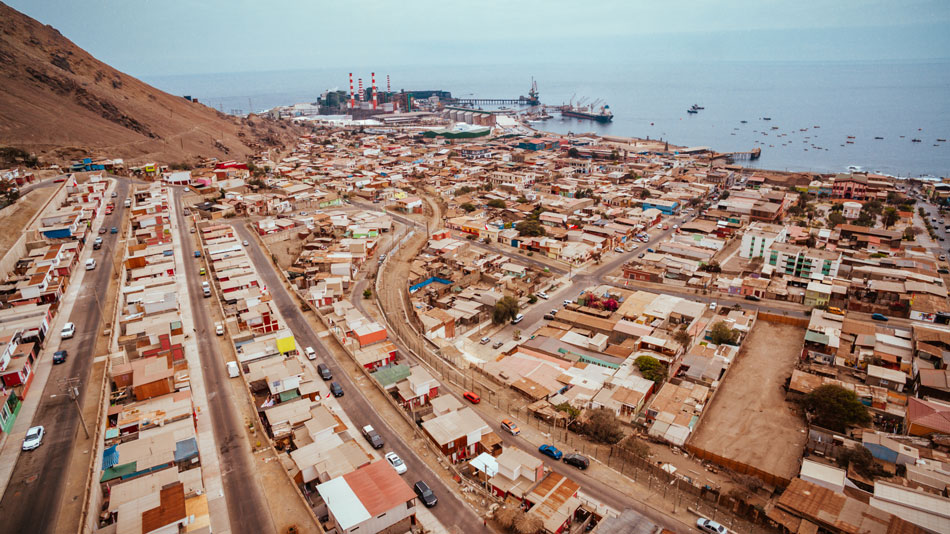- The photograph shows Tocopilla, a city in the north of Chile where coal-fired power plants are in operation, which be will shut down in the next years: In June 2019, a voluntary agreement was reached between the Ministry of Energy and companies operating coal-fired power plants over a scheduled withdrawal and/or conversion of eight of these by 2024. Then in December 2019, during the COP25, two units were added to the closure schedule. In May 2020 the closure of two further plants by 2022 was anounced. Thus, by 2024, 12 coal-fired power plants will be withdrawn and/or converted, corresponding to 31% of the country’s installed coal capacity. The full closure of the remaining units is expected by 2040 at the latest.
- From an environmental standpoint and both in the long and short term, the removal of coal-fired units is beneficial in reducing air emissions, decreases the negative impact on marine biota, reduces seawater suction and discharge for cooling, eliminates the risk of coal spills and recovers space for other uses, in addition to road traffic noise and impact reduction and many more.
- Despite the benefits, plant closure triggers challenges to the recovery of socio-environmental areas, in terms of adequate soil sanitation, as well as iron recycling and other unused structures.
- Socially, coal-fired power plant closure could have a detrimental local impact, in varying degrees and depending on the site, particularly in the loss of jobs.
- To manage unemployment and confront social challenges, the concept of “Just Transition” was developed. This process seeks to create a positive impact on processes involving local communities for environmental recovery, employment conversion programs, and sustainable economic development.
